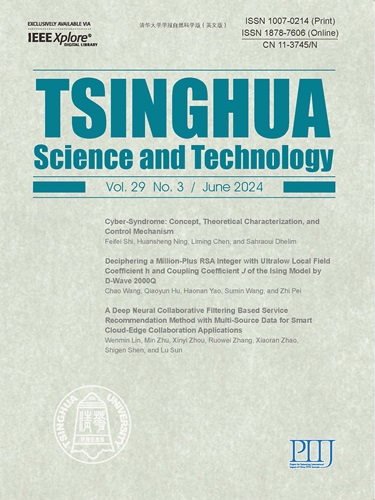Optimizing Data Distributions Based on Jensen-Shannon Divergence for Federated Learning
IF 6.6
1区 计算机科学
Q1 Multidisciplinary
引用次数: 0
Abstract
In current federated learning frameworks, a central server randomly selects a small number of clients to train local models at the beginning of each global iteration. Since clients' local data are non-dependent and identically distributed, partial local models are not consistent with the global model. Existing studies employ model cleaning methods to find inconsistent local models. Model cleaning methods measure the cosine similarity between local models and the global model. The inconsistent local model is cleaned out and will not be aggregated for the next global model. However, model cleaning methods incur negative effects such as large computation overheads and limited updates. In this paper, we propose a data distribution optimization method, called federated distribution optimization (FedDO), aiming to overcome the shortcomings of model cleaning methods. FedDO calculates the gradient of the Jensen-Shannon divergence to decrease the discrepancy between selected clients' data distribution and the overall data distribution. We test our method on the multi-classification regression model, the multi-layer perceptron, and the convolutional neural network model on a handwritten digital image dataset. Compared with model cleaning methods, FedDO improves the training accuracy by 1.8%, 2.6%, and 5.6%, respectively.基于詹森-香农发散优化数据分布,实现联合学习
在当前的联邦学习框架中,中央服务器在每次全局迭代开始时随机选择少量客户端来训练局部模型。由于客户端的本地数据不依赖且分布相同,局部模型与全局模型不一致。现有研究采用模型清洗方法寻找不一致的局部模型。模型清洗方法测量局部模型和全局模型之间的余弦相似度。不一致的局部模型将被清除,并且不会为下一个全局模型聚合。然而,模型清理方法会产生负面影响,例如大量的计算开销和有限的更新。本文提出了一种数据分布优化方法,称为联邦分布优化(federaldistribution optimization, FedDO),旨在克服模型清洗方法的不足。FedDO计算Jensen-Shannon散度的梯度,以减少选定客户的数据分布与总体数据分布之间的差异。我们在手写数字图像数据集上对我们的方法进行了多分类回归模型、多层感知器和卷积神经网络模型的测试。与模型清洗方法相比,FedDO的训练准确率分别提高了1.8%、2.6%和5.6%。
本文章由计算机程序翻译,如有差异,请以英文原文为准。
求助全文
约1分钟内获得全文
求助全文
来源期刊

Tsinghua Science and Technology
COMPUTER SCIENCE, INFORMATION SYSTEMSCOMPU-COMPUTER SCIENCE, SOFTWARE ENGINEERING
CiteScore
10.20
自引率
10.60%
发文量
2340
期刊介绍:
Tsinghua Science and Technology (Tsinghua Sci Technol) started publication in 1996. It is an international academic journal sponsored by Tsinghua University and is published bimonthly. This journal aims at presenting the up-to-date scientific achievements in computer science, electronic engineering, and other IT fields. Contributions all over the world are welcome.
 求助内容:
求助内容: 应助结果提醒方式:
应助结果提醒方式:


